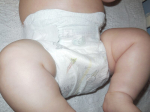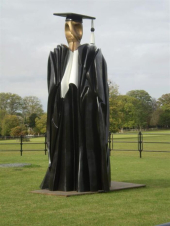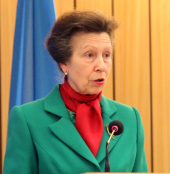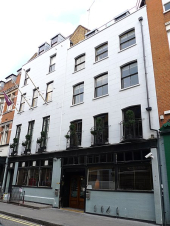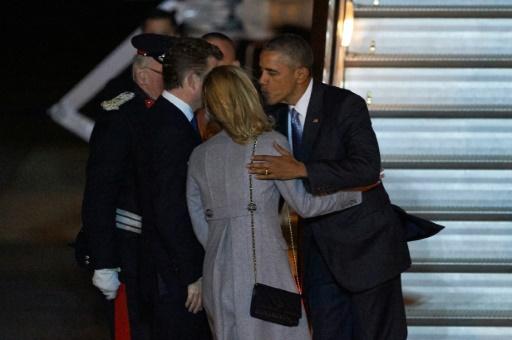
US President Barack Obama plunged into Britain's increasingly poisonous EU debate on Friday with a powerful warning against Brexit, arguing that US soldiers had laid down their lives for Europe.
Obama's rare foray into the domestic politics of another country comes ahead of Britain's EU membership referendum in June and drew a furious response from eurosceptics like London Mayor Boris Johnson.
Writing in the Daily Telegraph, a traditional bastion of euroscepticism, Obama argued that Britain's place in the European Union magnified its global influence and invoked the memory of US troops who died in two world wars.
"I realise that there's been considerable speculation -- and some controversy -- about the timing of my visit," he wrote in a piece published at the start of his four-day trip to Britain.
"I will say, with the candour of a friend, that the outcome of your decision is a matter of deep interest to the United States.
"Tens of thousands of Americans who rest in Europe's cemeteries are a silent testament to just how intertwined our prosperity and security truly are.
"And the path you choose now will echo in the prospects of today's generation of Americans."
- Churchill bust row -
Johnson, the leading face of the eurosceptic campaign, said it was "downright hypocritical" of the US to intervene as it would not accept the same limits on its own sovereignty as EU members do.
"For the United States to tell us in the UK that we must surrender control of so much of our democracy is a breathtaking example of the principle of do as I say, not as I do," Johnson wrote in The Sun tabloid.
Johnson also repeated claims that "part-Kenyan" Obama may have removed a statue of Winston Churchill from the Oval Office at the start of his first term out of "ancestral dislike of the British Empire".
The White House has previously rejected the allegation over the bust of the British wartime leader as "completely false".
Prime Minister David Cameron's spokeswoman also dismissed it Friday, saying: "Let's focus on facts".
Asked about the controversy at a campaign event, anti-EU UK Independence Party leader Nigel Farage told AFP: "Obama doesn't like the British very much. His grandfather grew up in Kenya, a former British colony. He's still got some bad feelings about that."
He added: "I would rather he butted out and wasn't here saying what he's saying... We don't need his advice".
The issue of Brexit is likely to surface again at talks with Cameron later on Friday, to be followed by a press conference.
Ahead of the meeting, Obama and First Lady Michelle Obama had lunch at Windsor Castle with Queen Elizabeth II, who turned 90 on Thursday, and her husband Prince Philip.
- 'Appeal from the heart' -
Richard Whitman, professor of politics and international relations at the University of Kent, said Obama's was "an unusually personal intervention".
"He's making a very strong appeal from the heart," he said.
"It will be difficult to say from the polls whether his intervention made a significant difference but I think that it creates a narrative which appears to be favouring the 'Remain' campaign."
A poll by Sky News television found 57 percent said Obama's intervention would make "no difference" to their vote.
Sixty percent of respondents said Obama's views on EU membership were not important in an ITV News poll conducted by ComRes, with 51 percent saying that Obama should not make his views on the issue public.
While experts warn many people have not yet decided how to vote, the "Remain" camp currently has 54 percent support compared to 46 percent for "Leave", according to an average of the last six opinion polls by academics at the What UK Thinks project.
Seen from Washington, Cameron's decision to call a referendum was a bold -- if not downright risky -- gamble that could leave Britain and the EU badly weakened.
"The EU has helped spread British values and practices -- democracy, the rule of law, open markets -- across the continent and to its periphery," Obama wrote.
"The European Union doesn't moderate British influence -- it magnifies it.
Britain's voice in the EU keeps the bloc "outward looking" and "closely linked" to the United States, he said. afp














